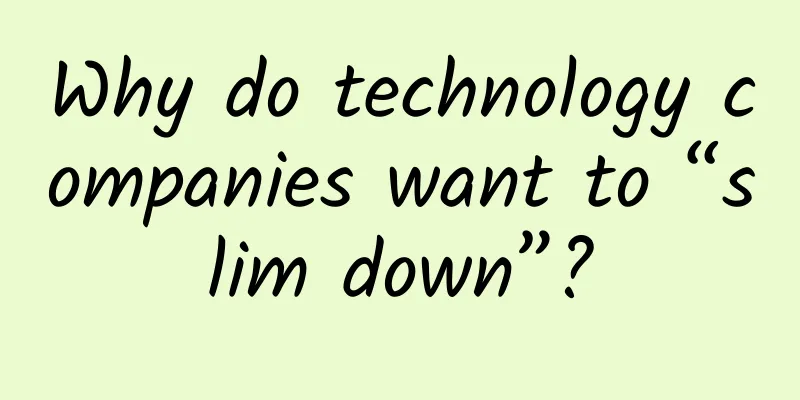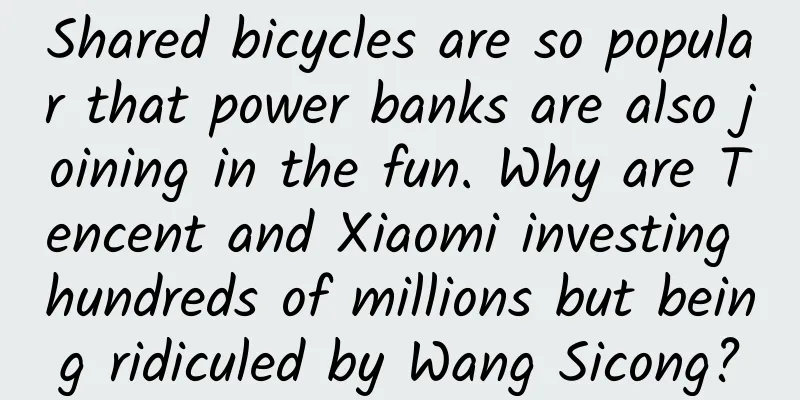Why do technology companies want to “slim down”?

|
Recently, there has been a wave of "slimming down" in the technology industry. HP was split into "HP Enterprise" and "HP Inc.", IBM sold X86 servers to Lenovo , eBay announced that it would split PayPal next year, and so on. One thing after another, it is very lively. If we include earlier cases, such as Sony's splitting of its TV and notebook businesses, Motorola's division into two independent companies, Motorola Mobility and Motorola Solutions, Alibaba's splitting of Alipay, and IBM's sale of its PC business, we can say that downsizing has never stopped in the active restructuring process of technology companies. A closer look at these slimming cases reveals that although they are all about subtraction on the surface, the purposes, original intentions and business logic behind them are not the same. By categorizing these cases, we can roughly draw a slimming map of technology companies. One purpose of downsizing is strategic transformation. Taking the HP spin-off as an example, separating the declining PC and printer businesses from the enterprise-level IT business with greater growth prospects can be regarded as an important strategic transformation of the company, focusing on providing hardware, software and solutions to major customers, so that the company's development focus is more in line with the trend of the next generation of IT development. For example, IBM has just been approved to sell its X86 servers to Lenovo for $2.1 billion, and is now focusing on cloud computing and other fields, shifting from "hardware" to "software." As software capabilities will become the future competitiveness of IT companies, IBM's transformation, including Dell's previous move to focus on data center hardware and software in addition to the PC business, is all about planning for the future. Sometimes, downsizing is also a restructuring that company shareholders actively promote in order to increase returns. Last Tuesday, the US e-commerce giant eBay announced that it would split its PayPal payment business in 2015 into two listed companies, and all shareholders would be allocated two types of stocks, the new eBay and the new PayPal. This move was welcomed by eBay shareholders, pushing the stock up by about 7.5% that day. It is said that eBay's move was stimulated by the listing of its competitor Alibaba in the United States. eBay's major shareholders believe that by separating the fast-growing PayPal from the slowing e-commerce platform business, the valuation of the two independent listed companies will be higher than the current one. eBay said in an official statement: "The separation will help the two companies capture their respective development opportunities and is the best way to continue to create shareholder value." Downsizing is sometimes a helpless move from the perspective of performance. In February this year, Sony announced the sale of its declining PC business and reached an agreement with JIP, which was seen by the industry as a way to reverse the embarrassing situation of negative performance growth. HP's split of its PC business does not rule out the possibility of clearing obstacles for the possible sale of its PC business in the future. Of course, corporate slimming is a complex process, and the reasons behind it cannot be simply summarized into a few categories. For example, the split of HP into two is actually a "dodge measure in the process of falling" in the eyes of some industry insiders, laying the foundation for future mergers and sales. On the other hand, compared with the situation in which the quality problems of personal PCs were exposed by CCTV and were deeply involved in the whirlpool of public opinion, turning to "more private" enterprise-level services may reduce its public relations pressure. Even if we take the Alipay split that made Jack Ma make the "toughest decision", the official reason given was that it was a last resort to avoid the risks of the VIE structure and obtain a payment license, but the game between Jack Ma and the major shareholders also ran through the entire incident. However, no matter what the original intention is, narrowing the scope of focus is beneficial to the development of the company. Focus, flexibility and rapid action are the advantages of the slimmed-down company. "It is better to forget each other than to help each other in times of trouble", which may be the ultimate reason for the company to split its business. As a winner of Toutiao's Qingyun Plan and Baijiahao's Bai+ Plan, the 2019 Baidu Digital Author of the Year, the Baijiahao's Most Popular Author in the Technology Field, the 2019 Sogou Technology and Culture Author, and the 2021 Baijiahao Quarterly Influential Creator, he has won many awards, including the 2013 Sohu Best Industry Media Person, the 2015 China New Media Entrepreneurship Competition Beijing Third Place, the 2015 Guangmang Experience Award, the 2015 China New Media Entrepreneurship Competition Finals Third Place, and the 2018 Baidu Dynamic Annual Powerful Celebrity. |
<<: Forbes: Why did Apple abandon GT Advanced?
>>: Interpretation of the 2014 Nobel Prize in Physics: A lighting revolution in the 21st century
Recommend
Agina: I am the earliest rocket upper stage and also a multi-talented person in aerospace
Agena is the earliest rocket upper stage and an i...
How to eat during Chinese New Year?
01 Improve immunity Prevent infection and promote...
Liaoyang Mini Program Agency Company, how much does it cost to be an agent for a parent-child mini program?
Liaoyang parent-child mini program agents are gen...
3 key points to quickly increase followers on Xiaohongshu, recommended to save them!
In the past few days, I have looked at no less th...
Why can ordinary H5 games make users unable to stop playing?
When it comes to games , what comes to everyone’s...
Do user needs really need to be met?
"Users say they want this feature, why haven...
Fact check | After being bitten by a squirrel, I went to the hospital to get 5 shots of vaccine. Is this abuse?
Today there was a news on Weibo that a boy was sc...
Tips for recording notes on Xiaohongshu!
To understand the issue of note collection, just ...
A power strip full of chargers is not "convenient" but "dangerous"! After reading this article, you will want to go home and unplug the power cord
Edit: Thanks One of my husband and dad’s favorite...
Really solve your pain points, those conscientious Android-exclusive applications: Privacy tools
The openness and freedom of the Android system ar...
Long-term fatigue after Yang Kang, beware of "catching COVID-19"!
More and more people say that they experience sym...
Six years of iOS development experience was replaced by interns, and the so-called "experience" is worthless
Written in front: Recently, I have seen many iOS ...
What? So many good things can be found in the toilet? No wonder archaeologists are so serious about it!
Recently, a toilet-like remains dating back about...
3 strategies for native advertising!
Only by using fewer "tricks" can you tr...
How much does it cost to join the Zibo Second-hand Car Mini Program?
Is it easy to join the Zibo Second-hand Car Mini ...









